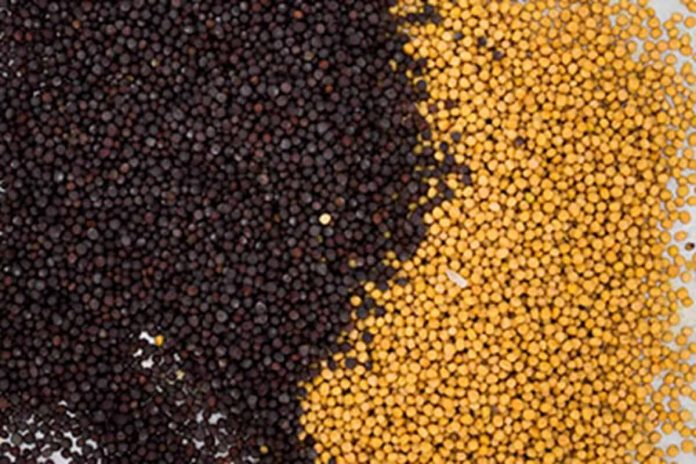You probably reach for the mustard when you’re making a sandwich or roasting vegetables, but have you ever considered adding it to your first aid cabinet? As it turns out, mustard is good for more than just adding a spicy kick to mealtime. The chemical compounds it contains make it a perfect remedy for a variety of common (and not so common) ailments. Here are six particularly surprising uses for mustard.
1. Sooth a sore throat
If you have a tickle in your throat, whether due to allergies or illness, mustard can help in the form of a soothing gargle. Mix 1tbsp of the mustard seed with the juice of half a lemon, one 1tbsp of honey, 1tbsp of salt, and a cup of hot water. Stir to combine, then gargle and spit until you’ve used the whole mixture. You should notice relief that lasts for several hours.
2. Reduce the risk of cancer
Mustard is full of allyl isothiocyanate, a naturally occurring chemical compound that researchers believe may reduce the risk and spread of cancer. A 2011 study showed that allyl isothiocyanate was particularly effective in stopping the proliferation of bladder cancer cells. If you are at high risk for cancer, talk to your doctor about the possibility of adding mustard supplements to your daily health routine.
3. Combat congestion
If you’ve ever eaten particularly spicy mustard, you may have noticed that it caused your eyes to tear up and your nose to run. That’s because the allyl isothiocyanate causes a sensation of heat in your nasal cavities, which prompts the muscles in them to temporarily dilate. You can use this fact to help get rid of pesky chest and sinus congestion by employing a mustard plaster.
Mix 1tbsp of the mustard seed with one egg white, then spread the mixture on a cheesecloth. Lay the cloth over your chest so that the mixture is not touching your skin, then cover the whole thing with a warm, damp cloth. The mustard will help dilate the muscles in your sinuses and nose, allowing the congestion to drain and helping you breathe more easily. However, it’s important to note that mustard plasters should not be used on children younger than six.
4. Relieve joint pain
Mustard has also been shown to reduce bodily inflammation caused by arthritis or gout, relieving joint pain. That’s because the spicy chemical compounds in mustard help dilate capillaries in the same way they dilate nasal passages. This process improves blood circulation and warms the skin, reducing swelling and improving joint mobility. You can use the mustard plaster recipe described above for joint pain as well, but remember not to let the plaster rest on the skin.
5. Relax aching muscles
If you have sore feet or achy muscles, the warming properties in mustard can help you relax and recover. To draw a mustard bath, fill a tub with warm water, then add 1tbsp of Epsom salts and 2tsp of mustard. You can soak for up to twenty minutes to relieve pain and fatigue in your muscles. To take the ache out of sore feet, add 1tbsp of Epsom salts and 1tbsp of mustard to a basin of warm water, then soak your feet for 5-10 minutes.
6. Stimulate healthy digestion
When eaten, mustard helps to stimulate the production of gastric acid, key player indigestion. Studies have shown that mustard can help improve gastrointestinal functioning by promoting balanced digestion, reducing instances of both diarrhea and constipation. Mustard oil has also been shown to promote regular, healthy colon function by reducing inflammation and improving symptoms of colitis.











